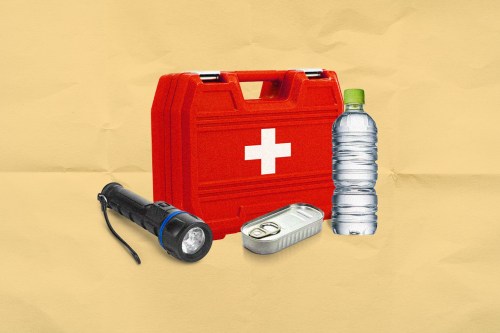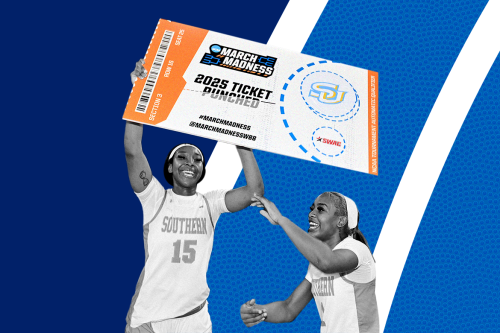Even if all you’re doing is lying on the couch and scrolling on your phone, chances are, you’ll be tempted to buy at least one item. You log on to Instagram only to be confronted with a cozy sweatsuit you were eying the other day. Then, an ad for that serum you recently added to your cart the but didn’t ultimately purchase pops up while you’re reading a news article. And then, your friend texts you the link to a virtual sale for a brand you love. The through-line here is that shopping can have a hard gravitational pull to avoid, even if you don’t leave your house—especially considering the many payment tools that exist now to make rationalizing certain purchases easier than ever.
Experts in This Article
founder and CEO, Financial Gym
Options for payment certainly no longer stop at “cash or card.” Rather, if you don’t want to pay in full for, say, a designer purse you can’t stop dreaming about, you can make smaller, interest free payments over the span of several months using platforms like Afterpay, Klarna, or Affirm. Heck, you can even use these tools to buy face wash.
Furthermore, many brands offer up their own credit card to customers, promising perks and discounts to those who sign up and continually use the card at the respective brand. Many of these brand-specific credit cards carry no fee—so, is there any harm in opting-in? Are there best practices for using these various payment tools?
As the founder and CEO of Financial Gym, a financial-coaching company, Shannon McLay is asked how to use payment tools like these on a regular basis. For her advice on how to avoid falling for money traps and making purchasing decisions that actually pay off, keep reading. You’ll be shopping like a financial expert in no time.
How to use payment tools wisely, according to a financial expert
1. Point-of-sale loans, like Afterpay, Klarna, or Affirm
Point-of-sale loans are integrated into many retailers’ sites to allow buyers the option to split their payment into four interest-free segments instead of paying in full at checkout. (Afterpay, Klarna, and Affirm are popular companies using this model right now.) According to McLay, there are times when it makes sense to use tools like these, and also times when it doesn’t.
“Afterpay [or other point-of-sale payment options] can be helpful if you need to buy something that’s a necessity but you don’t have the cash.” — Shannon McLay, CEO of Financial Gym
“Afterpay [or other point-of-sale payment options] can be helpful if you need to buy something that’s a necessity but you don’t have the cash,” she says. “For example, if your laptop dies and you need it to work or if you need to book a flight home because one of your parents is sick.” Money emergencies happen and since Afterpay doesn’t charge interest, it can make sense to take advantage of it—as long as you are confident you’ll be able to make the payments later because they will eventually come around.
For smaller, spontaneous (and less necessary) purchases, though, McLay isn’t generally a fan of this payment method because she says it’s easy to forget about. Agreeing to a $12 biweekly payment for a pair of shoes, $24 for a new fall coat, and $6 for a new face primer might not seem like a big deal in the moment, but purchases like these can add up to a big chunk of change without you necessarily realizing it.
If you like to shop this way, though, McLay recommends setting aside a certain amount of money each month specifically devoted to this and also tracking what you buy in some way, such as in a spreadsheet. That way, when you get a notification about your bill, you aren’t surprised. “For example, if you set aside $100 per month for Afterpay purchases, you could have 10 $10-per-month plans,” she says. Ultimately, point-of-sale loans aren’t necessarily good or bad, so long as you budget accordingly.
2. Store credit cards
The offers for store-specific credit cards may be enticing, with discounts unlocked right when you sign up as well as in the future. But this is one payment method to which McLay suggests avoiding tempation. “Store credit cards tend to drive more unnecessary spending. Someone may shop there more than they normally would simply because they have the card,” McLay says. While she’s not against shopping, McLay cites research finding that spending money on retail shopping brings less joy than spending money on experiences as a reason for limiting unnecessary purchases. “Buying one-off things with a store credit card that you wouldn’t normally buy won’t bring that much happiness in the end,” she says.
In addition to potentially leading to overspending, McLay says store credit cards typically don’t have high credit limits, so using them won’t necessarily help build credit.
3. Traditional credit cards
While she’s not a fan of store-specific credit cards McLay is into traditional credit cards—so long as they’re used consciously. “Depending on your credit score, using traditional credit cards comes with benefits, like cash back or travel points,” she says. “This is different from store credit cards, which only offer a discount.”
McLay says the two keys to using credit cards wisely is reserving them for purchases you were going to make anyway and paying your bills on time. What you avoid doing, if possible, McLay says, is using credit cards to make purchases you can’t afford now and won’t be able to afford later, when the bill is due.
4. Reward programs
If a place where you’re spending money IRL uses a payment system like Square or Clover, there’s a good chance you’ll be prompted to enter your phone number or email address to redeem a star or earn points. In general, McLay is into reward programs like these if they’re connected to places you visit regularly regardless. “If you buy coffee from the same place every morning, why not earn some points that will get you a free one in the future?” she says. Similarly to credit cards, she says the key to reward programs working in your favor is utilizing them only at places you’d be spending money anyway (as opposed to going out of your way to do so).
No matter how you’re paying for your purchases, though, McLay emphasizes the importance of budgeting. Even if the money you’re allocating for certain payments isn’t coming out of your account immediately, it will eventually. With that in mind, if planning isn’t your thing, remember that you can always use your debit card or cash. With all the payment methods out there, sometimes it pays to stick to the basics.
Oh hi! You look like someone who loves free workouts, discounts for cutting-edge wellness brands, and exclusive Well+Good content. Sign up for Well+, our online community of wellness insiders, and unlock your rewards instantly.
Sign Up for Our Daily Newsletter
Get all the latest in wellness, trends, food, fitness, beauty, and more delivered right to your inbox.
Got it, you've been added to our email list.











